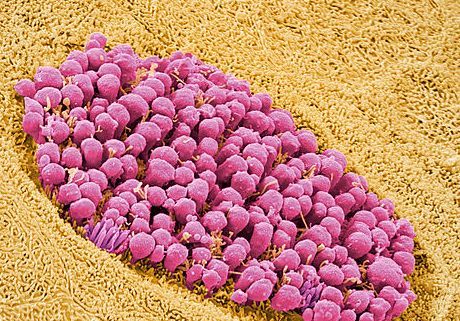New publications
Olfactory neurons do not regenerate, scientists claim
Last reviewed: 01.07.2025

All iLive content is medically reviewed or fact checked to ensure as much factual accuracy as possible.
We have strict sourcing guidelines and only link to reputable media sites, academic research institutions and, whenever possible, medically peer reviewed studies. Note that the numbers in parentheses ([1], [2], etc.) are clickable links to these studies.
If you feel that any of our content is inaccurate, out-of-date, or otherwise questionable, please select it and press Ctrl + Enter.
Unlike animals, neurogenesis in adults occurs not in the area of the brain that supplies new neurons to the olfactory tract, but only in the area where the memory and learning command center is located.
Humans are born with a fixed set of olfactory neurons, researchers at the Karolinska Institutet in Sweden report in the journal Neuron. Not long ago, this would have been a platitude, but since the discovery of neurogenesis in the adult brain, olfactory neurons are thought to be renewed throughout life.

At least this is the case with all mammals - except, as we now know, humans.
Neurogenesis in the mature brain is concentrated in two areas - the hippocampus, responsible for learning and memory, and the subventricular zone of the walls of the brain ventricles. Animal studies have shown that neurons formed in the subventricular zone migrate to the olfactory tract and are embedded in the olfactory bulb. In humans, only the formation of neurons in the hippocampus was clearly confirmed; data regarding the second focus of neurogenesis were uncertain.
Scientists from the Karolinska Institute have tried to track the emergence of new neurons using the radiocarbon method. According to their data, the olfactory tract of a fully formed human brain can only produce a very small number of new nerve cells - if they appear there at all. In order to replace just 1% of our olfactory neurons, we need to wait a hundred years - while in rodents, half of the olfactory neurons are renewed in a year.
However, the authors of the work themselves specify that they could only see those neurons that were integrated into the olfactory pathways. That is, in principle, neurogenesis in the subventricular zone in humans can occur, only the nerve cells are not directed from there to the olfactory tract. Or such cells can die immediately after birth. It is possible that it is precisely because of switched-off (or incorrectly functioning) neurogenesis that humans have lost the ability to smell as acutely as animals. And here, of course, it would be very interesting to repeat these same experiments, but with professional "sniffers": perfumers, chefs, wine merchants, sommeliers. It is known, for example, that newborn olfactory cells in rodents quickly die off if the animal does not practice its sense of smell, does not smell new smells. Perhaps, things are exactly the same with us and the renewal of olfactory neurons occurs in those who really need them.

 [
[